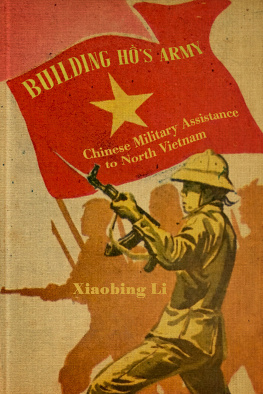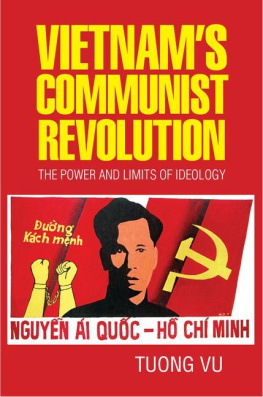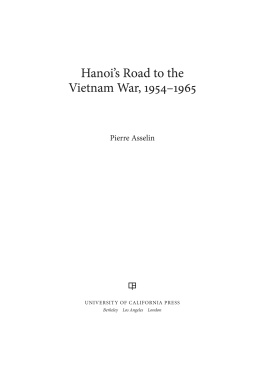THE COMMUNIST ROAD TO POWER IN VIETNAM
SECOND EDITION
The Communist Road to Power in Vietnam
William J. Duiker
The Pennsylvania State University
First published 1996 by Westview Press
Published 2018 by Routledge
711 Third Avenue, New York, NY 10017, USA
2 Park Square, Milton Park, Abingdon, Oxon OX14 4RN
Routledge is an imprint of the Taylor & Francis Group, an informa business
Copyright 1981, 1996 by Taylor & Francis
All rights reserved. No part of this book may be reprinted or reproduced or utilised in any form or by any electronic, mechanical, or other means, now known or hereafter invented, including photocopying and recording, or in any information storage or retrieval system, without permission in writing from the publishers.
Notice:
Product or corporate names may be trademarks or registered trademarks, and are used only for identification and explanation without intent to infringe.
Library of Congress Cataloging-in-Publication Data
Duiker, William J., 1932
The communist road to power in Vietnam / William J. Duiker. 2nd ed.
p. cm.
Includes bibliographical references and index.
ISBN 0-8133-8586-5 (hc). ISBN 0-8133-8587-3 (pbk.)
1. VietnamHistory20th century. 2. CommunismVietnam History. I. Title.
DS556.8.D83 1996
959.704dc20
95-53084
CIP
ISBN 13: 978-0-8133-8587-7 (pbk)
To Yvonne,
Now and Always
It has been nearly fifteen years since the publication of the first edition of this book. Since that time a considerable amount of new information has become available that provides new insights into the factors that led to the stunning victory of the Communist Party in the long conflict in Vietnam. Some of that material has been in the form of the publication of collections of documents, historical monographs, or memoirs by participants in the war inside Vietnam. In addition, the opening of the archives of the Comintern in Moscow and the publication of materials relating to the war in China have thrown new light on the role played by Hanoi's two major allies, the USSR and the PRC, in the Vietnamese revolution.
Accordingly, I have decided to embark on a new edition of this book, which remains the only attempt to provide a comprehensive analysis of the revolutionary strategy of the Vietnamese Communist Party from its inception in 1930 to the final victory in the South in the spring of 1975. I have been gratified to discover that most of the key conclusions I reached for the original edition are still valid, but it is clear that some modifications are desirable to reflect new information released in recent years and to correct errors of fact and interpretation from the original version. I hope that the result will be useful to those who have read the first edition as well as to new readers.
Over the past decade, I have had the good fortune to make several visits to Vietnam for the purpose of conducting research on various aspects of the history of the war. I would like to thank the Social Sciences Research Council for providing me with financial assistance for a lengthy visit in 1990. A shorter visit was arranged through the assistance of the Ford Foundation in 1993. The Institute for the Arts and Humanistic Studies at The Pennsylvania State University helped to fund a trip to Hanoi in 1985.
During these visits I was privileged to receive assistance from a number of scholars involved in researching the history of the war and the Vietnamese revolution. Nguyen Thanh of the Revolutionary Museum, Tran Thanh of the Institute of Marxism-Leninism, and Nguyen Huy Hoan of the Ho Chi Minh Museum all graciously agreed to interviews. Phung Huu Phu, Le Mau Han, Pham Xanh, and Pham Cong Tung were very useful during talks with historians at the University of Hanoi. The late Ha Huy Giap of the Ho Chi Minh Museum and Dang Xuan Ky, then director of the Social Sciences Institute, were kind enough to talk with me about their personal reminiscences. At the Institute of History, Do Quang Hung, Ngo Phuong Ba, Van Tao, and Tran Huu Dinh were all very helpful in giving their time to explore key issues related to my research. In particular, I would like to single out Vu Huy Phuc, who was invariably pleasant and helpful as my escort during my visit in 1990.
In Moscow, Gennadi Maslov provided me with some intriguing insights into the inner history of the Party and various aspects of Soviet-Vietnamese relations. Oxana Novakova of the Institut Vostokovedenia granted me an extended interview to discuss Soviet views on the history of the Vietnamese Communist movement. Director Li Xian Heng of the Guangdong Revolutionary Museum was helpful when I was seeking information on Ho Chi Minh's activities in China in the 1920s. Georges Boudarel and Bui Tin have shared with me their own written recollections of the war.
I would also like to express my continued gratitude to others whose names are mentioned in the acknowledgments to the first edition. That, of course, includes my wife, Yvonne, whose help and encouragement cannot be adequately acknowledged in a few short words in this preface.
William J. Duiker
Until a little over a decade ago, there were few basic studies in Western languages of the origins and development of the Vietnamese Communist movement. In retrospect, it is clear that this lamentable ignorance was in no small measure responsible for the tragic involvement of the United States in the civil struggle in that country. The recent war spawned a new generation of Vietnam specialists, and it is through their labors that we now have a clearer picture of the Communist movement and the reasons for its extraordinary success. But there is still much to learn, and until the Party leadership in Hanoi indicates a willingness to open its archives, our knowledge of the dynamics of the Communist role in the Vietnamese revolution will remain incomplete. For that reason no study of the recent warincluding this one can be more than an imperfect effort to illuminate a murky and highly complex topic. I am grateful for the efforts of all those who have preceded me in this task.
One of the biggest problems involved in undertaking a study of this nature is to amass the scattered and diverse research materials relating to the rise of Vietnamese communism. Over the past few years I have become indebted to a number of individuals who have been of assistance to me in obtaining such materials. I am grateful to King C. Chen, Daniel Hemery, Chau T. Phan, Douglas Pike, Ronald Spector, John Tashjean, Carlyle Thayer, and Joseph Zasloff for furnishing me with useful documents and articles that I had been unable to obtain elsewhere. I would particularly like to thank King Chen for sending me copies of the recent Black Paper and White Paper issued by the governments in Phnom Penh and Hanoi respectively. I would also like to thank the staffs at the Library of Congress in Washington, D.C., the Wason Library at Cornell University, and the National Archives of France, Section Outremer, for their help in utilizing the resource materials at these institutions.
A number of people have offered useful suggestions on various parts of this manuscript. Ed Moise made a number of useful comments on Communist land reform policy during the height of the Franco-Vietminh war. Carlyle Thayer cleared up a number of ambiguities relating to Communist strategy in South Vietnam in the late 1950s. Bill Turley has been helpful in sharing with me his views on the evolution of Communist strategy since the early years of the Party. Mark Pratt provided comradeship and a pied terre during several short visits to Paris. Ken Post made a number of valuable comments and suggestions on the manuscript. I am particularly indebted to the late William Gaussmann for his suggestions and his encouragement in carrying out this project. His advice and his friendship are sorely missed.

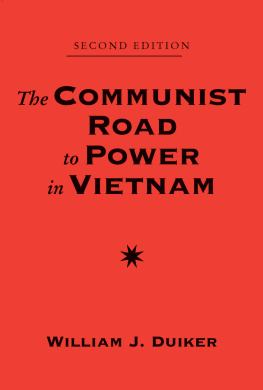
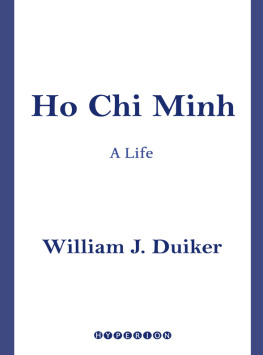

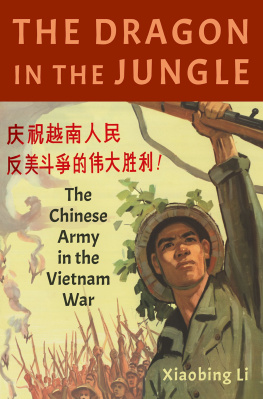
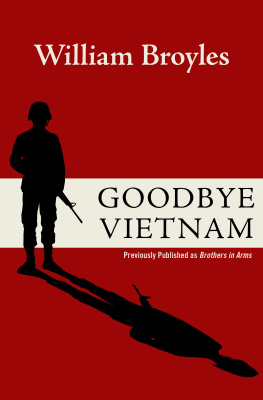
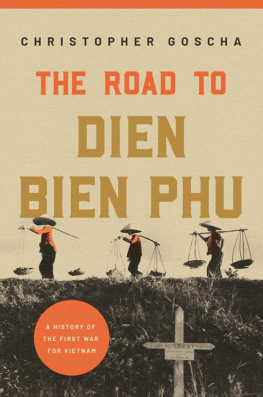

![Vietnam. Army - Ho Chi Minh: [a life]](/uploads/posts/book/242273/thumbs/vietnam-army-ho-chi-minh-a-life.jpg)
